Photos: Disease Detectives Seek Zika Answers in Brazil
February 29, 2016
Share
For months, health officials have been racing to answer a fundamental question about Brazil’s mysterious upswing in microcephaly cases: Is the birth defect being caused by the mosquito-borne Zika virus? If so, does every pregnant woman infected with Zika pass the virus to her unborn child? And does every fetus infected with Zika wind up with neurological problems? Are there other contributing factors?
Sixteen investigators from the Centers for Disease Control and Prevention arrived in Brazil last week to join their counterparts at Brazil’s Ministry of Health and the Paraiba Secretariat of Health in a study of these questions. The researchers have split into eight teams, and their goal is to enroll hundreds of mothers and their newborns into the study. We followed one team during their second day on the ground, in which they examined three families — two in a maternity hospital in the city of João Pessoa, and one in a family’s home.
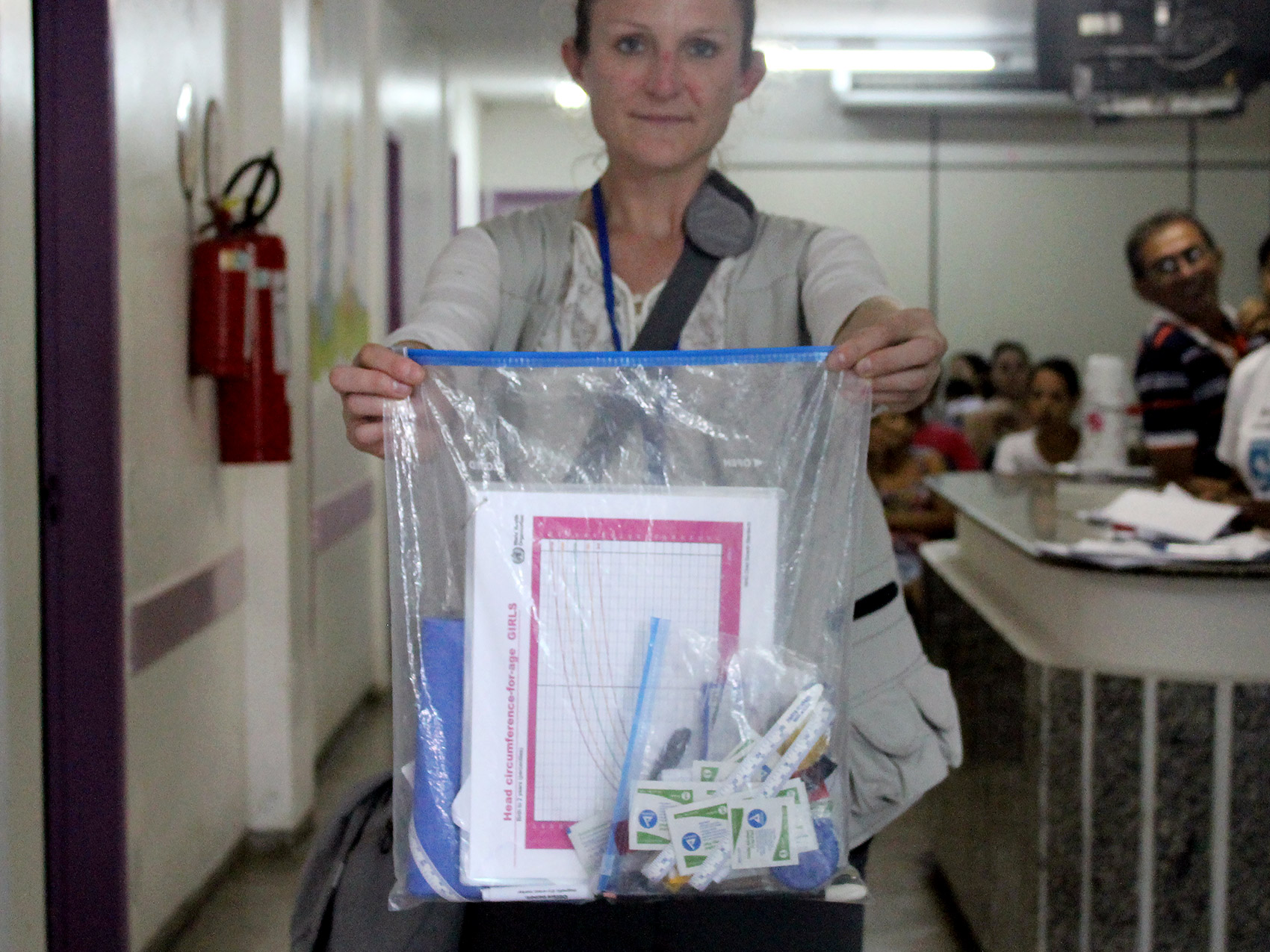
Dr. Ali Harrist, a pediatrician with the CDC, holds up a bag of supplies used by the research teams. With microcephaly, a baby’s brain stops developing normally mid-pregnancy. A telltale sign of the condition is a smaller than average head, so inside the bag is measuring tape to measure head circumference and height, growth charts to compare those measurements to averages, a blanket as a backdrop for photos, sanitation wipes and pens. In addition to taking measurements and blood samples, researchers also ask a series of questions about other potential risks that mothers may have been exposed to.
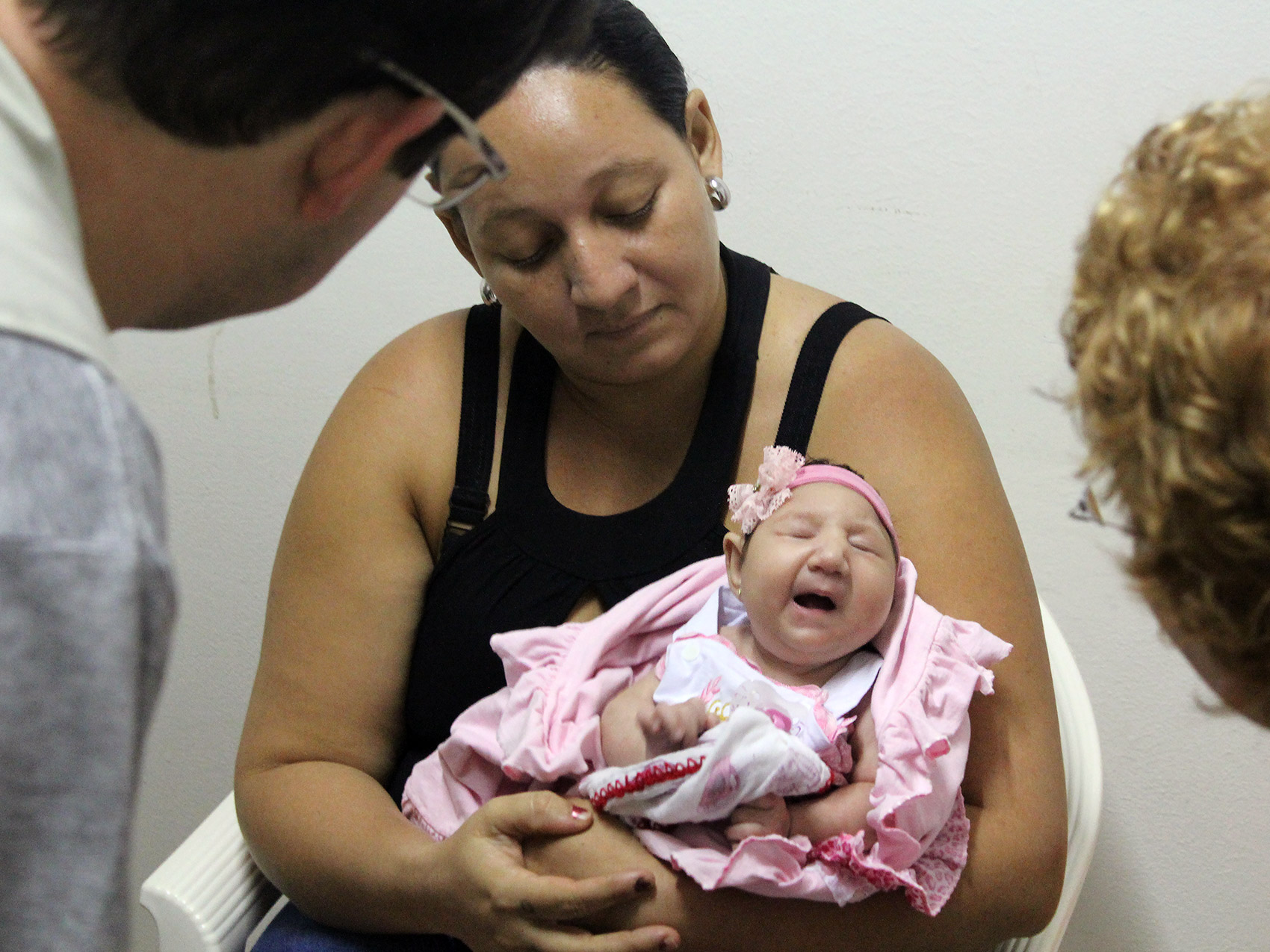
Daniele Nascimento, 26, is one of the first mothers to take part in the study. Her 8-week-old daughter, Cleane Ketillyn, has been diagnosed with microcephaly. Nascimento told investigators she believes she had Zika during the first week of her pregnancy: She had a rash, a fever and headaches for five days. The rest of the pregnancy she felt fine. Among other things, investigators asked her if she had eaten fish during the pregnancy — she had; if she had smoked — she had not; and if she drank alcohol — Nascimento said she had one glass of beer at six months of pregnancy.
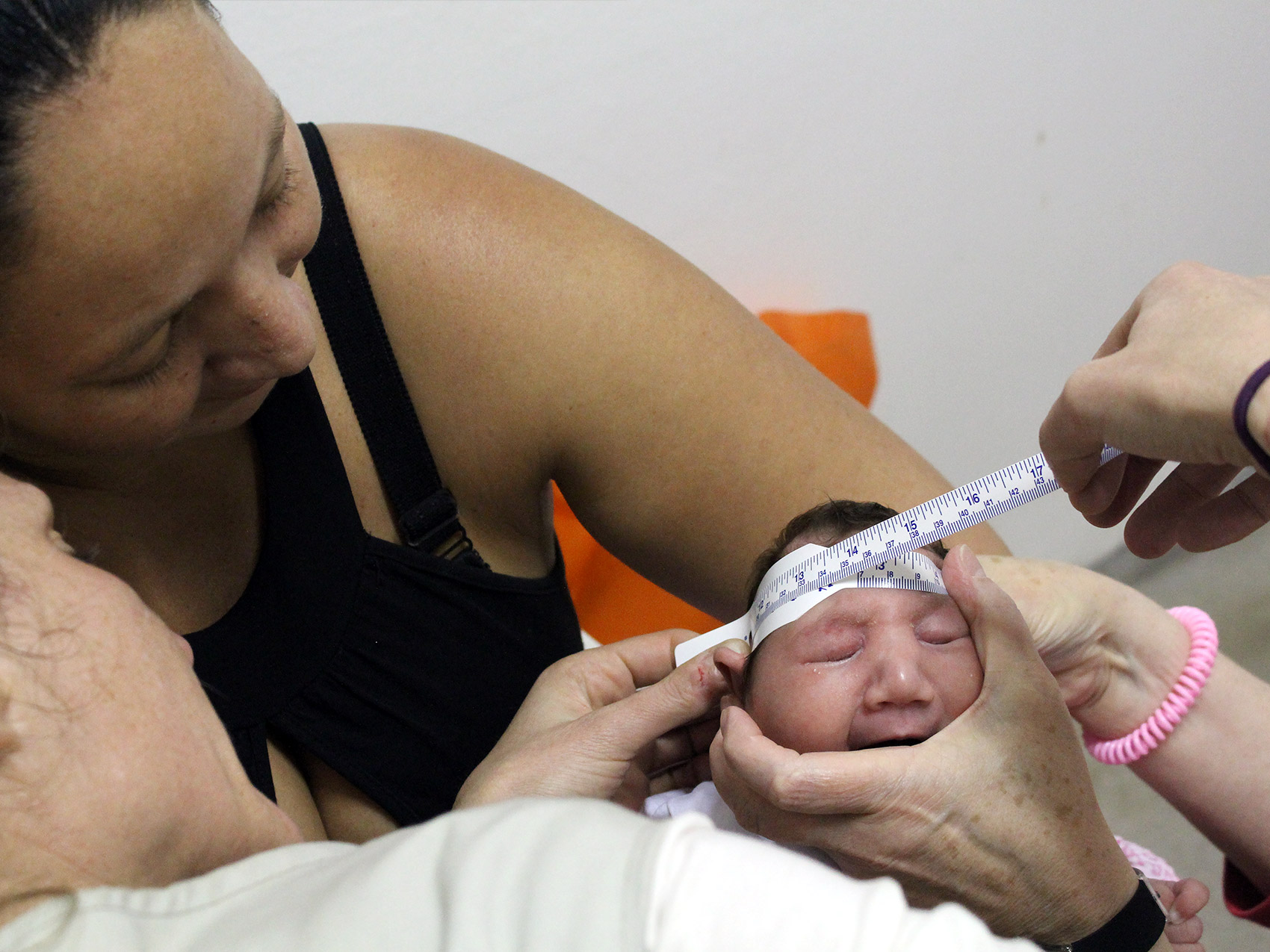
Nascimento holds Cleane while investigators measure her head. Any baby with a head circumference of less than 32 centimeters at birth is considered a suspected microcephaly case. At eight weeks, Cleane’s head measures less than 29 centimeters.
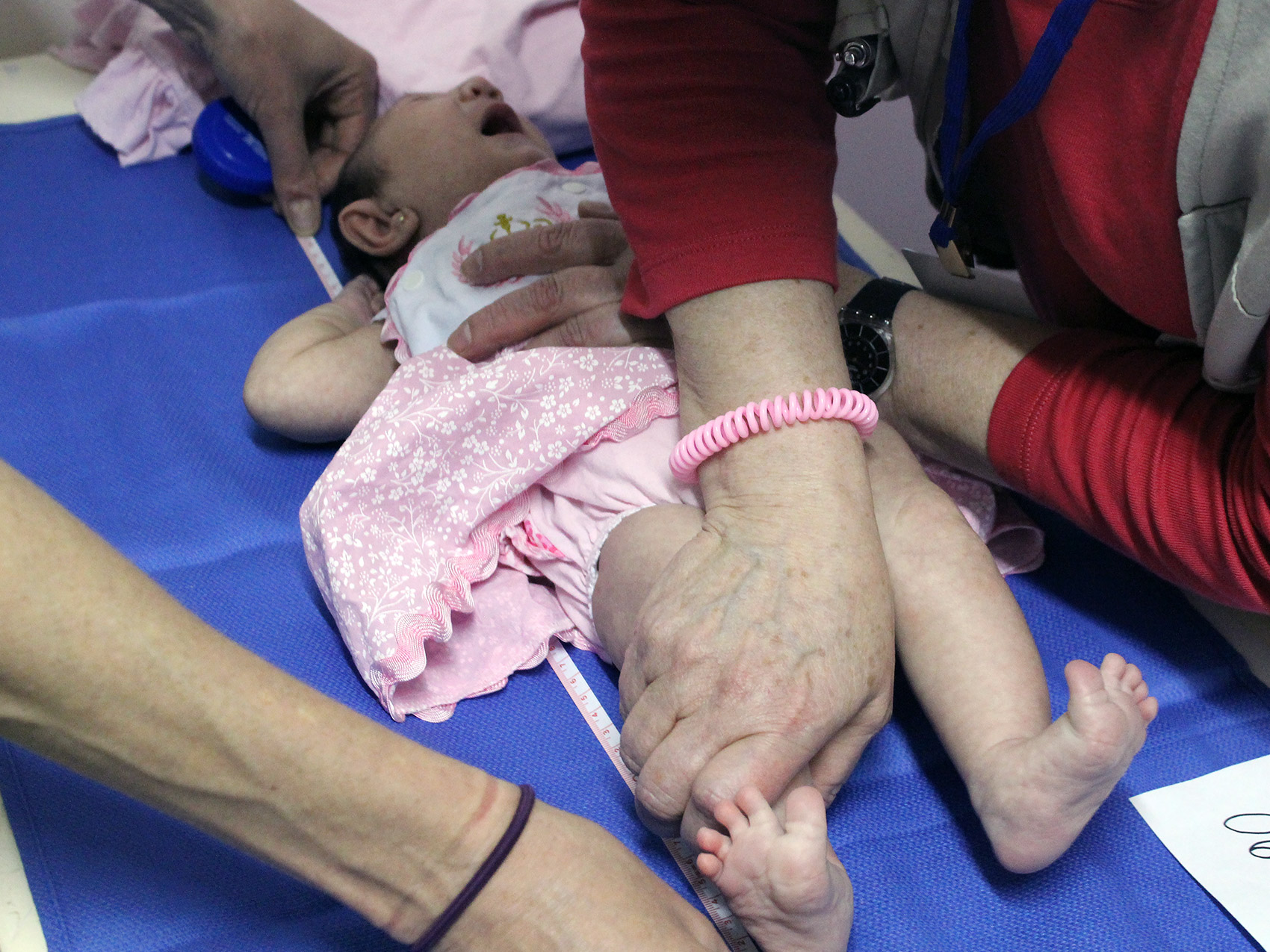
Because some infants are smaller than others, the 32-centimeter head circumference catches some false positives. To better determine whether the head size may be a birth defect, doctors take other measurements to see if the proportions fall outside averages.
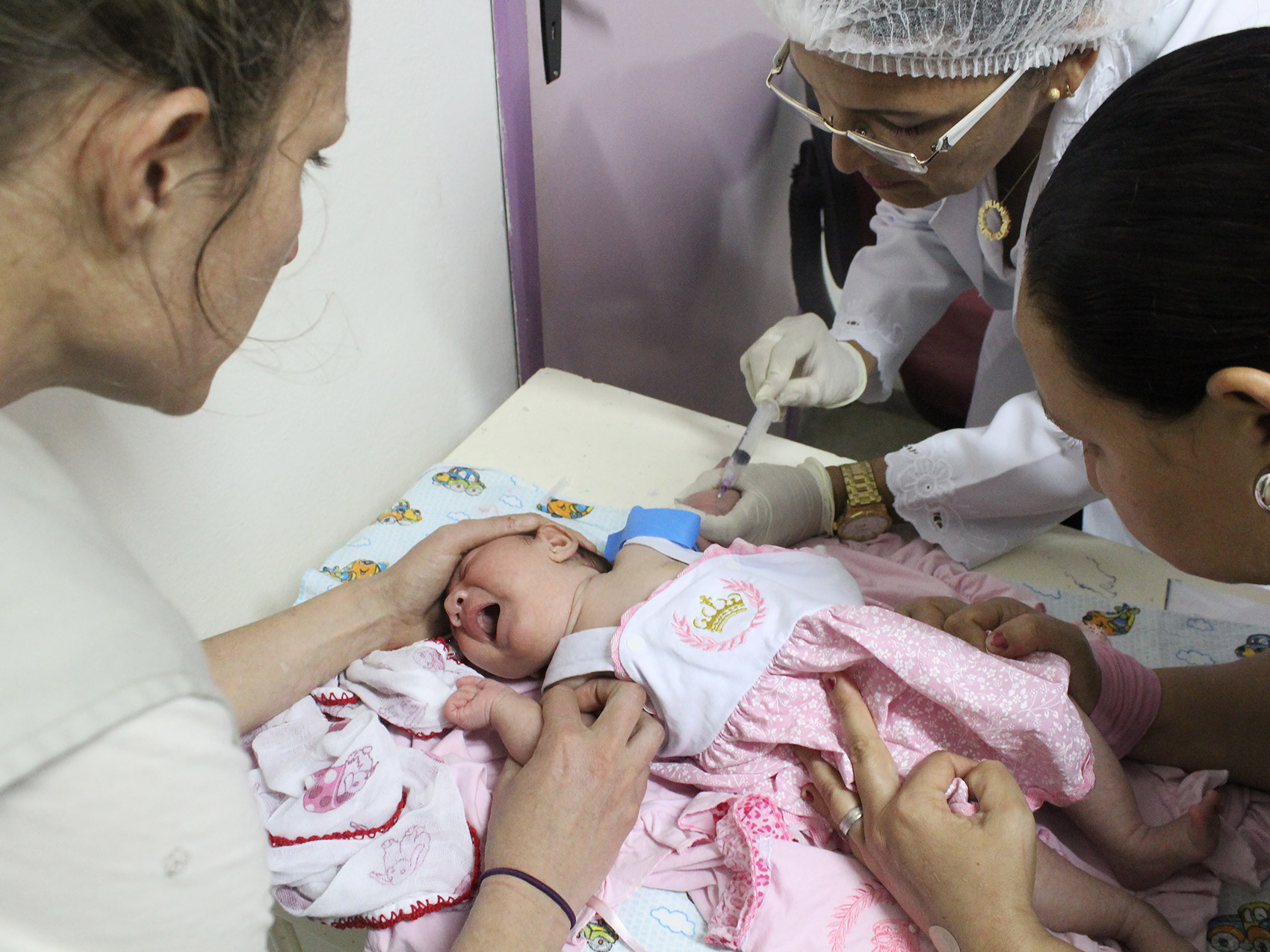
A phlebotomist drew Cleane’s blood, to her distress. Samples from both her and her mother will be sent to Fort Collins, Colo., where they will be tested for antibodies to the Zika virus. Samples will also be tested from families whose babies are the same age and from the same neighborhood, but who do not have microcephaly, to determine if they were infected with Zika. Investigators hope to determine if there is a correlation between mothers and babies whose blood shows evidence of a Zika infection and microcephaly.
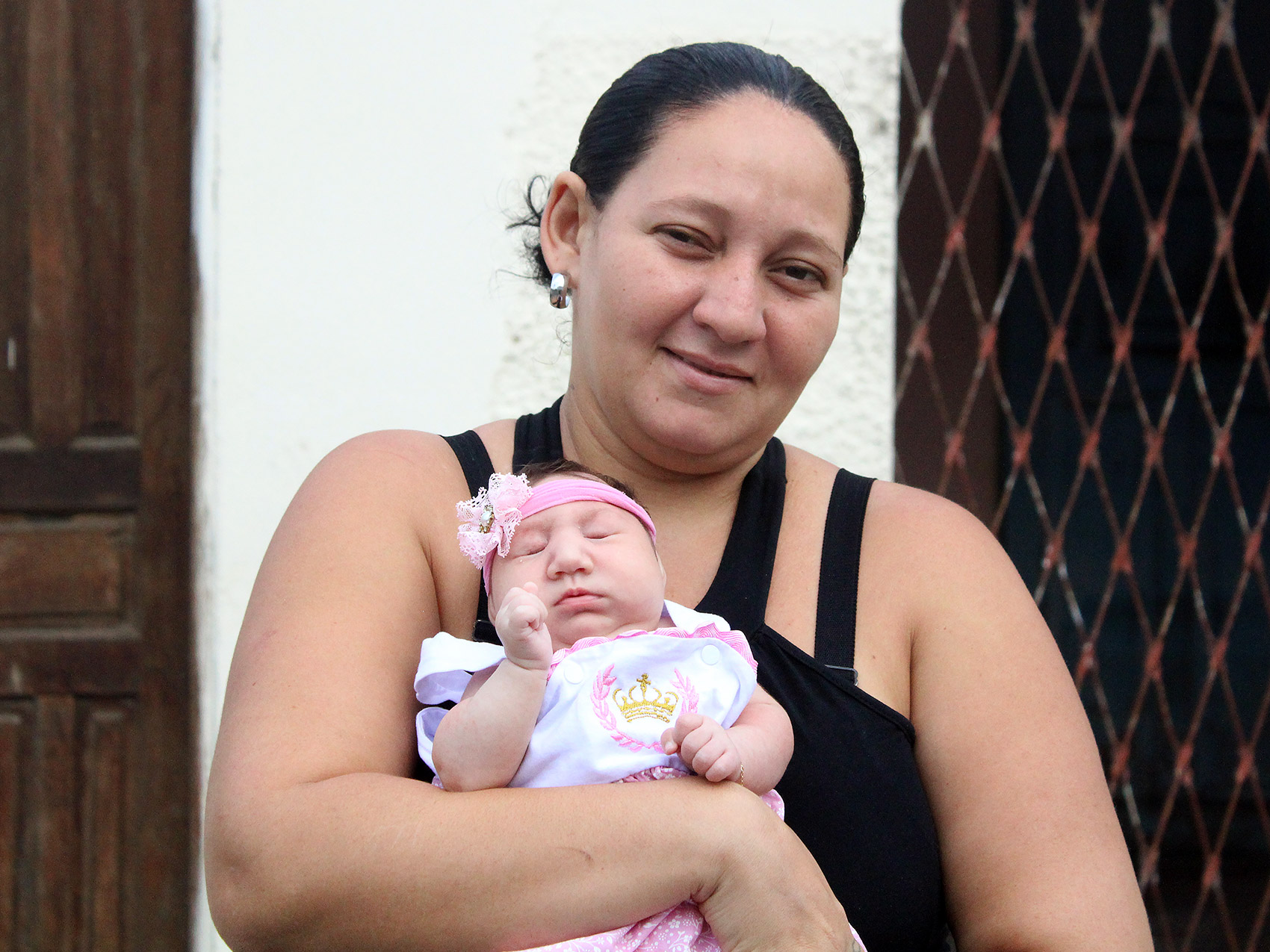
After the exam, Cleane fell asleep in her mother’s arms. Nascimento is not convinced that her baby’s microcephaly was caused by Zika. She wonders if it was instead caused by the vaccines she took during pregnancy. “My neighbor across the street got Zika, and she didn’t have the vaccines, and her baby is OK,” she says. But she agreed to participate in the survey because she “wants to see if it really is the mosquitos causing this problem.”

Latest Documentaries
Explore
Policies
Teacher Center
Funding for FRONTLINE is provided through the support of PBS viewers and by the Corporation for Public Broadcasting, with major support from Ford Foundation. Additional funding is provided the Abrams Foundation, Park Foundation, John D. and Catherine T. MacArthur Foundation, Heising-Simons Foundation, and the FRONTLINE Trust, with major support from Jon and Jo Ann Hagler on behalf of the Jon L. Hagler Foundation, and additional support from Koo and Patricia Yuen. FRONTLINE is a registered trademark of WGBH Educational Foundation. Web Site Copyright ©1995-2025 WGBH Educational Foundation. PBS is a 501(c)(3) not-for-profit organization.



















